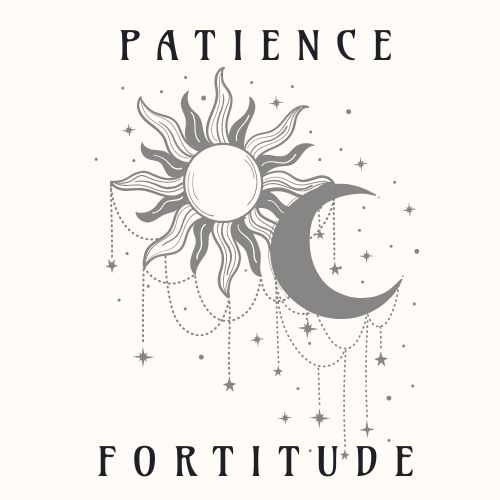I’m here to talk about Dr. Who.
That might seem an odd segue for a blog about atheist grief, but last night when I was chatting with a friend, both subjects came up and I was spellbound. Why? Because in the end, both Dr. Who and grief are about personal regeneration.
This started when my friend J. was talking about her friend, whom we’re going to call British Steve. So the idea really tracks back to him, which is no big surprise when you think about it because British Steve is, as you may have guessed, British. His comment to her was that grief recovery is a lot like Dr. Who’s life cycle: it requires complete regeneration.
I had to explain Dr. Who mythology to J., who wasn’t familiar with Time Lords. In the process, I realized, “holy crap, British Steve is RIGHT!”
In my book Grieving Futures I have a chapter about grief “recovery”, a word I don’t think applies at all to the process or the goal. It implies that you will get back to some kind of steady state, that you will “get over” grief and recover. But you won’t. You can’t, because that steady state of who you used to be has been shattered. It really isn’t like breaking a bone, although that metaphor has its uses. In GF I decided that the word “recuperation” fit better, although even at the time I knew it wasn’t perfect. You can recuperate from a broken leg and walk around like nothing happened, even if once in a while your leg twinges with pain or aches on rainy days. It’s the same leg and it works the same way, it looks the same, it IS THE SAME. Broken but healed: you have recuperated.
But regeneration isn’t like that. As I explained to J., when the Doctor regenerates, it’s a complete genetic remapping of his body (apologies to Dr. Who fans if I mangle this a little, I’m not really a hard core fan, I’m just familiar with the show). Intrinsically, he’s still the Doctor. But because his body has been remade, he’s also a completely different person, and not just in looks: his humor is different, his attitude is different, his reactions are different. His moral center as a Time Lord is the same, and he has all of his memories (mostly?) and he is always, always theDoctor. But he’s also not the same at all.
And that, my dear readers, is exactly what grief does to you. It regenerates you.
In thinking this over, I realized that I have regenerated about three times (not counting childhood, but I think an argument could be made for that). The first time was when my mother was diagnosed in late 1992; the second, after my father died in 1996 and I was well and truly on my own; and the third, in 2008 when I hit the psychological skids and had to completely….wait for it….regenerate. I think I’m actually undergoing a slow regeneration now, or maybe getting ready for one? Who knows how many times I’ll hit that reset, but now that I understand what is happening, I think I’m more prepared for it.
Back to the idea of regeneration, though: it’s painful, it’s scary, and there are no guarantees of who you will be on the other side. “Ten“, the tenth Doctor famously played by David Tennant, is known for the quote, “I don’t want to go.” It’s a heartbreaking moment because he knows he’s losing the life he created for himself in that form. When he regenerates,  he won’t feel quite the same way about things and people, and he won’t react the same way either. Whatever he gains through regeneration (namely, an extremely extended lifespan) comes with great loss as well. And he damn well knows it.
he won’t feel quite the same way about things and people, and he won’t react the same way either. Whatever he gains through regeneration (namely, an extremely extended lifespan) comes with great loss as well. And he damn well knows it.
I suppose this isn’t a very pleasant version of grief, but then, I pride myself in not pulling punches when talking about this stuff. It sucks, okay? It just sucks and it hurts and it’s awful.
But, and here’s the kicker: not regenerating at all isn’t a viable option. There is no stasis. You either rot in place or you change. To be honest, I rotted in place for a decade. I thought it was safe, but it was also pretty painful, and depressing, and in the end I had to regenerate anyway. It always comes back to that, and you can put it off until the pain is too great to continue or you can get it over with quickly and deal with the fall out. I’m not saying one way is good or bad, right or wrong, just that regeneration is inevitable.
This concept probably applies to a lot of traumatic life events, not just grief, and I find myself applying it liberally to my own story now. I understand clearly now why I am still the 26 year old young woman who lost her family, her home, and her pets and yet am someone so profoundly different I don’t see the similarities anymore. I have not lost a single experience, despite having a completely different outlook and personality. Friends from 1990 or 1998 recognize me as the same person, but also talk about how much I’ve changed. Part of that is the aging process, of course — brains change over time, we accumulate experiences that feed into our behavior and outlook. That’s the expected part of life.
Trauma, though, throws a wrench into the process. It takes a slow slide along the track of “getting older” and throws you bodily off it onto another track entirely. You’re still getting older, you still have all the memories and mementoes of “life before” but you’re going in a new direction in a different mind/body combination with different thoughts and different emotions.
You’re not recovering from grief or any other form of trauma, nor recuperating from it — the experience has, bodily by force, regenerated you completely.
So it’s all scary and it’s got no guarantees and it means letting go of parts of yourself that you used to believe were permanent elements of your personality. On this side, that just sounds awful, and stressful, and painful. The irony here is that regeneration is the only way the Doctor can survive and by regenerating, he continues his adventures helping people and fixing time itself. For us, as mere humans, grief/trauma forces us into regeneration both as a protective measure to keep us alive and a progressive measure to help us continue on into a new stage of adventure.
You don’t wanna go…but you will, and when you do, you’ll find an amazing, brand new life. That’s just how it works.
